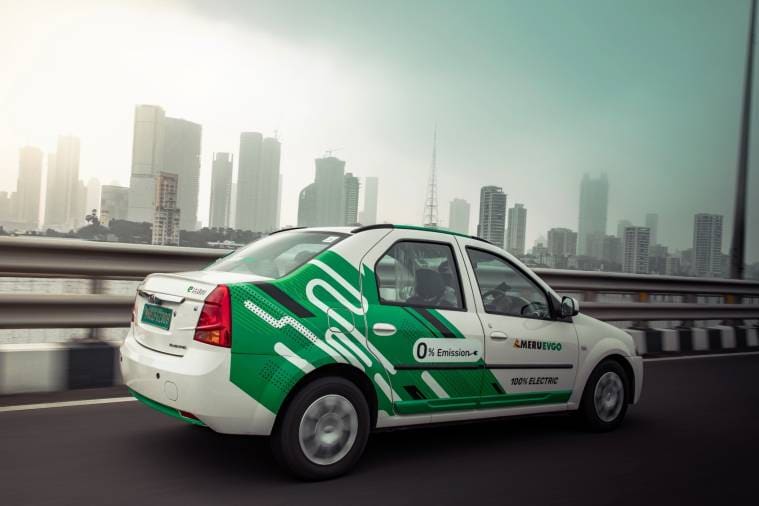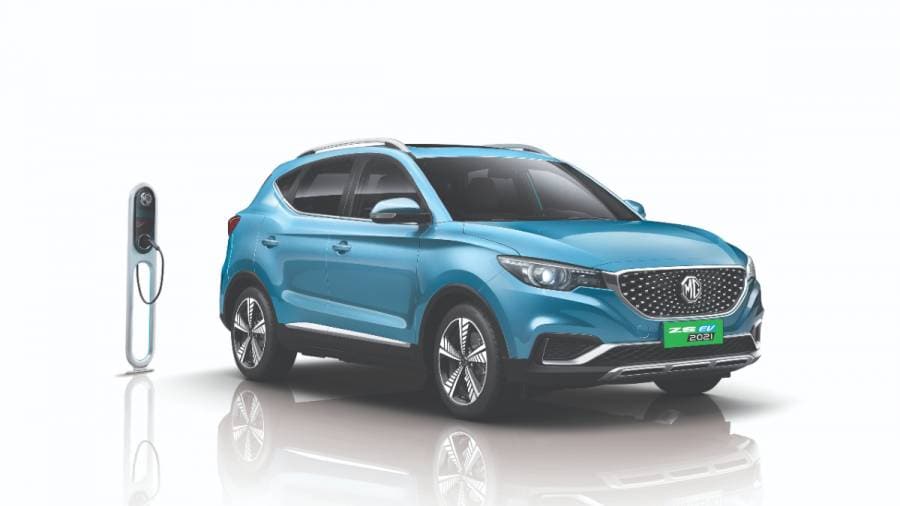Electric vehicles - Why they give better mileage or power efficiency in the city, than on the highway
The interest in electric vehicles or EVs is growing and one is often asked, "How different is the EV driving experience?" Well, though there are some similarities, there are also several huge disparities. In this series of stories, we will highlight how driving an electric vehicle is quite unlike a conventional car.
 EVs have higher power efficiency in city traffic because the energy recovery rate is better when you keep slowing down.
EVs have higher power efficiency in city traffic because the energy recovery rate is better when you keep slowing down.
"Kitna Deti Hai", Maruti's famed series of advertisements superbly captured our country's fascination for fuel economy. And while fuel efficiency in a fossil fuelled car maybe crucial, in an electric vehicle it is the single most important factor that influences maximum buying decisions.
 As the charging infrastructure is still limited, driving an EV can lead to range anxiety.
As the charging infrastructure is still limited, driving an EV can lead to range anxiety.
Interestingly, internal combustion cars deliver the best fuel efficiency on highways as they are driven in higher gears with the engine operating at lower RPM (revolutions per minute). But in the case of EVs, it is the complete opposite. EVs have the best range and power efficiency when driven in the city and if you head out onto the open road, the range reduces. This is due to regenerative braking or the regenerative energy systems fitted on EVs that allow kinetic energy to be converted back to electrical energy, whenever the vehicle decelerates or slows down. And obviously, you decelerate most in stop and go city traffic. The regenerative energy system that automatically slows a vehicle down whenever the accelerator is released also permits one pedal driving, as explained earlier in this series.
 The regenerative braking system if used optimally can extend range by 20 to 30 percent.
The regenerative braking system if used optimally can extend range by 20 to 30 percent.
A big difference between driving conventional internal combustion (IC) engine vehicles and EVs is "Range Anxiety". In an IC car whenever fuel runs low, you just pull into a station and refuel and drive out in a matter of minutes. But in an EV if the power is running out, it's likely you will get what is increasingly being termed as "Range Anxiety". Yes, one gets anxious because charging an EV is certainly not as convenient as refuelling an IC car and the chances of getting stuck on the road are much higher. This is because the charging infrastructure in our country is still very limited and even when you reach a charging point; one has to wait for a few hours for the batteries to get sufficient charge.
 On the highways there is less use of regen braking, so there is lesser recapturing of energy too.
On the highways there is less use of regen braking, so there is lesser recapturing of energy too.
Another major dissimilarity is that in an IC vehicle you have a fairly good idea of the mileage and how far you can go with the fuel in the tank. But in EVs, the range which in any case is far less than ICs also keep varying due to several factors that influence the rate at which the battery energy is consumed. Yes, the power consumption rate is very dependent on things like the driving style. Of course this plays an important role in IC engine cars too, but in EVs it's even more critical. If you have a heavy right foot and are always pushing the pedal down instead of driving at half or quarter throttle, the battery will drain faster. If the air conditioner and entertainment system are in use, then the load on the batteries is more and this will also add to its consumption, as will driving with the headlights, wipers, etc. Going up slopes or hills requires far more energy from the batteries and they lose charge faster while going uphill. The number of people in the vehicle, or the load it's carrying, is a major influencing element too. It's just like your smartphone, use a lot of apps or continuously watch videos with the sound turned up, and your phone battery is bound to drain quicker.

There is one more vital aspect that determines the range, and this is the amount of energy that is recaptured by the regenerative braking system. Some studies show that if there is optimum use of regenerative braking, the range can be extended by 20 to 30 percent with the aid of recaptured energy. So let's say you drive 100 kms, the energy for about 20 or maybe 30 kms could be contributed by the regenerative braking system! This is a massive saving as its self-generated energy, and you don't pay a single rupee for it!
 In an EV the most important display is the one showing battery charge.
In an EV the most important display is the one showing battery charge.
The regenerative braking system recovers energy every time the vehicle decelerates, but the rate of recapture is higher when you make minimum use of the normal brakes. Whenever you release the accelerator in an EV, it automatically initiates regenerative braking, which in turn slows the car down quite rapidly. So it's definitely better to anticipate the braking and use just one pedal, to accelerate or decelerate. And since the slowing down happens without actually applying the brakes, the brake lights in several EVs still come on to alert other drivers. Simply put, every time you slow down without physically applying the regular brakes, you are recharging the battery. Another benefit of regenerative braking is that there is less wear of the brake pads and also tyres, and they last much longer on EVs. And in case the regular brakes fail or malfunction, the regen braking can play a backup role in helping the vehicle slow down.
 Driving at higher speeds also drains the battery faster.
Driving at higher speeds also drains the battery faster.
Out on the highways where you don't slow down so often, the regenerative system is also used less, as a result of which the EV does not recapture energy. And at higher speeds because most EVs don't have multiple gears (look at driving without a gearbox earlier in this series) the electrical motor rotates faster and consumes more energy.
Given all this, where and how you drive an EV, plays a significant role in its range. Some EVs also come with various driving modes that modulate and adjust the acceleration and increase the level of regenerative braking with the range being best in the economy or eco mode. As a matter of fact, one can devote an entire story on "How to drive and optimize range in an EV" and this is something you can look forward to later in this ongoing series.
Also see:
Electric vehicles-and driving with only one pedal
Electric vehicles-and driving with instant torque and rapid acceleration






